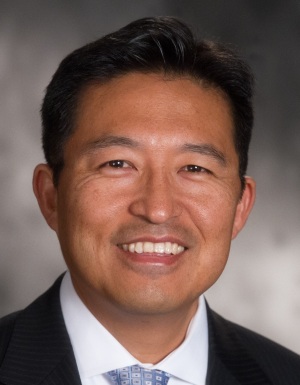by
Gus Iversen, Editor in Chief | July 25, 2022
From the July 2022 issue of HealthCare Business News magazine
Dr. Jimmy Y. Chung, M.D., MBA, FACS, FABQAURP, CMRP is the chief medical officer at Bon Secours Mercy Health and is currently serving as the 2022 AHRMM Advisory Board president. In the following interview, Dr. Chung discusses his career in healthcare, his experience as a member of AHRMM, and offers insights on the forthcoming annual AHRMM Conference & Exhibition.
HCB News: Who or what inspired you to follow a career in health care?
Dr. Jimmy Y. Chung: In college, I started volunteering at a free clinic in the midst of the AIDS crisis and soon decided that I wanted to become a doctor. During medical school, I volunteered at a rural hospital in Kenya where I gained a lot of experience in treating injuries … after that I decided to become a general surgeon.




Ad Statistics
Times Displayed: 34536
Times Visited: 926 Stay up to date with the latest training to fix, troubleshoot, and maintain your critical care devices. GE HealthCare offers multiple training formats to empower teams and expand knowledge, saving you time and money
HCB News: Can you tell us about your history with the AHRMM and why you first joined?
JC: I joined AHRMM during my first supply chain job as director of value analysis because I wanted to learn more about supply chain. As one of the few practicing physicians in the organization, I quickly realized the value of the organization for not just supply chain professionals but physicians and other clinicians. I felt strongly that supply chain is a subject that physicians need to understand and appreciate, but is sorely lacking in their education.
HCB News: What did that journey look like, from joining AHRMM to becoming the Advisory Board Chair?
JC: The mission and strategic map of AHRMM really aligned with my vision of a patient-centered, value-based healthcare system where our precious resources are managed to optimize the value of care and the patient experience. I wanted to contribute a physician’s perspective to the organization and help develop a clinically integrated supply chain program, so I decided to run for the board. After my three years on the board and also chairing the Conference Education Committee, I continued to pursue a career directed at supply chain, or as I like to call it, health resource optimization. Supply chain is no longer only about maximizing the value of products, but improving patient outcomes and experience through optimizing resource utilization and clinical service operations. When I was invited to run for Advisory Board Chair of AHRMM, I felt absolutely honored that I was being entrusted to lead such an esteemed and important professional organization.
HCB News: How would you describe the impact COVID-19 has had on hospital supply chain?
JC: COVID-19 obviously created significant stresses on hospitals by creating an unprecedented and unpredictable demand on PPEs, but I think it’s the impacts that are less visible to clinicians that have had more long-term effects. Virtually every hospital I know that had spent years perfecting their Just in Time (JIT) practice was now rethinking that strategy. Two years into the pandemic, the key word now is resiliency. Trust and collaboration between all the stakeholders were tested to the extreme, with not always good results. Automated systems that operated on demand signals were thrown for a loop, and some hospitals were disadvantaged due to allocation protocols. Outside the hospital walls, consumer demand competing for products or raw materials bound for health care also created havoc, such as plastics and resin used for IV bags and syringes and heavy metals used for computer chips. Most recently, COVID isolation protocols in China shut down the entire production of contrast media, causing a global shortage, which was not really a problem with supply chain but rather public health policies. All these issues brought to light the vulnerabilities and blind spots that perhaps most of us had never experienced in our careers.

